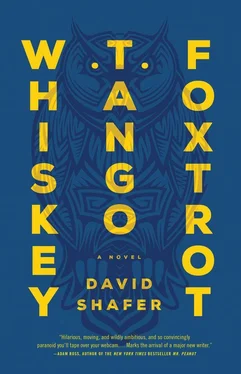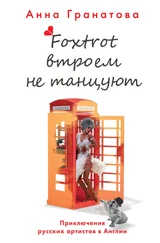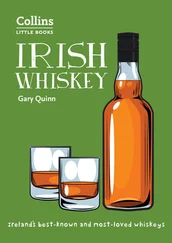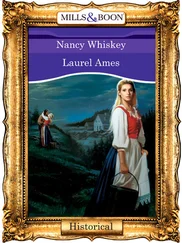“You just called yourself an asshole, right?”
“No. I’m a scrabbler. I was saying you guys are gonna be the assholes.” Mark turned to Leila. “You took this thing? This eye test?”
Leila nodded. “It was after we met in Heathrow, Mark. I’m new like you. Come in. The water’s fine.”
Creepy. Kinda hot, but creepy.
But Leila wasn’t the bossable or suggestible type. He knew that from playing cards with her in Heathrow, and from today, when they’d fled Nike and tramped through the forest. How would they have gotten her to do this?
“How’d they get you to do this?” he asked her.
Leila glanced at Roman Shades. He nodded a tiny assent.
“They said they would help me if I joined them. And they did.”
“How?”
“Your people fucked with my family. Framed my dad, gave him a heart attack—”
“ My people?” Mark interrupted. “Look, if you mean Straw, SineCo, the Node, all that…I know it’s data mining, and it’s no damn good. But we’re not giving anyone a heart attack. Or I’m not, anyway.”
“Yeah. Data mining, Deveraux. Sure. That’s what it is,” said Constance, sarcastic as a teen. “They just want to sell your address to Sunset magazine.”
Mark had no immediate reply.
“Information insurance?” said Constance. “Is that what Straw told you they’re at?”
That was the euphemism Mark recalled was most often applied to the activity taking place on Sine Wave 2 . She was right, information insurance didn’t really capture it.
“Because that’s not the plan at all,” said Constance.
“Oh yeah? What’s the plan, Nozzikins?” Mark tried to say her name sarcastically.
“They intend to influence the thought and language and culture and the social order by controlling the means by which we communicate with one another. First they’re going to get us used to the idea of giving up to their systems all of the information in our lives—”
“No one will do that,” objected Mark. “People guard their secrets. Or if some people want to do that, I suppose that’s their thing, and they deserve what they get.”
Constance waved his objection aside. “Really? What about that new SineLife app where you activate the video feed on your SineLenses and record for a day, and your Sine ‘writes’ an account of your day: They have people clamoring to beta-test it.”
The Screenplay: You app; yes, Mark knew of it. That was part of what he was supposed to have been cross-promoting at Nike.
“And once they have all this, this book on us, there are lots of bad things they can do with it. Maybe it’ll be a plain old pyramid scheme, where one cent on every dollar in the world flows to them. Maybe they’ll pretend to be North Korea or Ukrainian cyberthieves, and they’ll collapse everything and then sell back to you your master password, the one you didn’t know you had, the one that it turns out you’ll need if you want to recover your bank balance, your birth certificate, the title to your house, your right to your genetics. Whatever it is, it’ll be pay-to-play, across the board. Maybe they’ll just go the bleed-us-dry route. Like, make the world into a rubber plantation, with Committee principals safe in their armored superyachts and private continents.”
What she described did sound like Straw and Pope scheming over their snifters in buttoned club chairs. He wished she would stop talking, give him a minute.
“But that’s not what I think they’re planning,” she went on. “Or I think maybe they’ll do that first, but the real plan, their final solution, is a targeted genocide. I think the Committee principals are like those Georgia Guidestones people. At the top, anyway. I think they’ll need about ten years to collect enough biological and genetic material on us before they can ask their big computers which five percent of the human population should live so that they may begin the world again with their new project, which they call Enhanced Humanity, by the way. One of their writers came up with that. That’s the kinda shit you’ll be doing.”
He had to get out of here. “Does anyone here have any weed?” he asked the table. No one responded. He asked again. “Weed? Pot? Ganj? The chron?…Trip, you look like a man who knows his way around the business end of a bong. You holding?”
Hazards gave him a long look, then said, “Zip-lock in the terra-cotta pot on the porch, to the left of the door.”
“Thank you,” said Mark, standing up from the table in a manner that he hoped conveyed affront and impatience. He didn’t want to look like a scared, tired, confused man jonesing for a fix.
On the porch, he found the bag of pot, more than he was expecting — not a crinkly little baggie, but a folded freezer bag the size and heft of a dead pigeon. And what was this? A little tin of tobacco also. Yahtzee! He rolled a spliff and sparked it. He sat there in the night. The dark ring of the crater around him in the distance, a pink moon in an indigo sky. He could smell wet meadow and wood smoke.
A minute later, the screen door skkrring ed open and it was Leo, coming out alone. Leo approached, and Mark spun the spliff around, smooth as a sailor on watch, to offer it to his old friend. Leo made the faintest declining gesture.
“Oh yeah. You’re in recovery,” said Mark. “Though I see you still allow yourself neurotransformative eye tests.”
“It’s not like that, Mark.”
“What’s it like?” He was really asking.
“It’s like — you know how sometimes you wake up and you know just what to do? And you’re not baffled, and you’re not afraid of being found out, and you have no secrets, and you forgive the trespasses and are forgiven for your own?”
“Ah, yes. The mythical Huey Lewis drug,” said Mark.
But, yes, Mark did know those times. When he was with that last, lost love of his; for a while in college; some earlier times, back in the mists of his easy, humble childhood. Easy? Sure, the coop-flown dad. But we all have our things. There was the safety of his home, his mom, and Monopoly. Maybe that’s why all the drugs. Maybe he was just trying to get back to that.
“Really?” he said, squinting at the lit tip of his spliff. “They scan my retina and I am found?”
“It’s not a scan; you just look at this screen,” said Leo, trying hard to explain. “You know, like on a pachinko board, how the little ball drops randomly on one side or the other of all those little pegs? It’s like that. The way your eyes traverse the field makes a unique identifier, and you get a number. The test doesn’t take anything from you or leave anything behind.”
“Like a pachinko board?”
“Yeah, except much, much bigger. And instead of pegs, your eyes bounce off ideas. Actually, I guess I don’t necessarily know what pachinko is. And the screen looks back at you.”
“How can a screen look back? ”
“I don’t know. But this one does,” said Leo. “Maybe it’s the Second Coming.”
“Say again?”
“Well, why wouldn’t it happen that way? You know? Online, I mean. They wouldn’t try another guy-in-slippers thing, I don’t think.”
“Who are they, Leo?” asked Mark. “And don’t you mean sandals?”
“Yeah, sandals. You know: They. Our judges. You’re the one who taught me to think of them as judges, Mark. Don’t you remember?”
Vaguely. In those months after Leo’s parents died, when he was flailing. The sisters were all older when it went down. For Leo — not a child, not really a grown-up — it hit hard. So Mark took him off to Maine, out of view, away from the sisters and the lawyers and that creepy grief counselor. On the drive up, they’d divined this whole cosmology in which there were angel-y spirit things that looked down on the poor earth, but they were not omnipotent or even omniscient; they were just way older than the corporeal people, and they had some pull in the world. These were the judges. You picked your judges specific to the situation, was the loophole. That made it a forgiving cosmology.
Читать дальше












